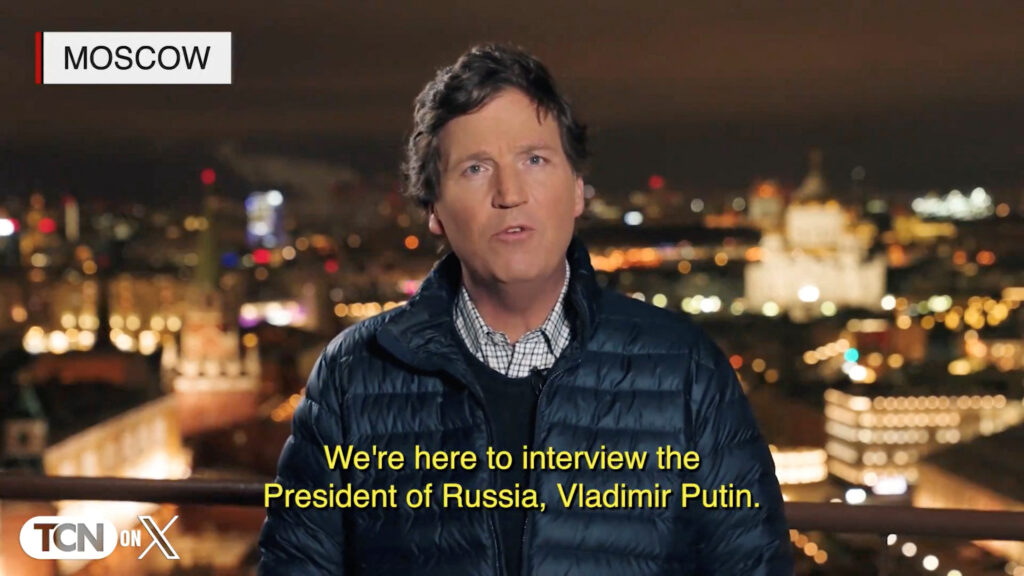In a move that has sparked widespread debate across the United States, Tucker Carlson’s recent interview with Russian President Vladimir Putin has thrown the spotlight on the complex relationship between American media and global politics. This event, significant for being Putin’s first interview with an American journalist since the onset of the Ukraine conflict, has raised questions about media impartiality, the role of journalism in diplomacy, and the divided opinion among Americans regarding Russia’s actions on the global stage.
A Controversial Platform
Tucker Carlson, the former Fox News host, is no stranger to controversy, with a reputation for pushing the boundaries of conventional news reporting. By securing an interview with Putin, Carlson has positioned himself at the center of a crucial narrative, offering an alternative perspective on the Ukraine conflict that challenges the mainstream media’s portrayal. This bold move has ignited discussions about the freedom of the press, editorial bias, and the responsibilities of journalists in shaping public opinion.
Divided Reactions
The American public’s reaction to the interview is as polarized as the political landscape itself. Supporters of Carlson applaud him for what they see as a courageous attempt to bring an unfiltered version of Putin’s views to the American people, advocating for a more nuanced understanding of international affairs. Critics, however, condemn the interview, arguing that it provides a platform for propaganda and undermines the collective Western stance against Russian aggression in Ukraine.

Navigating Through a Polarized Media Landscape
The Tucker Carlson and Vladimir Putin interview not only shines a light on the complexities of international relations but also brings into focus the deeply polarized media landscape in the United States. This polarization is not just about differing opinions but about how Americans perceive the role of media in democracy and its impact on public opinion and foreign policy.
The Role of Media in Shaping Perceptions
The interview has sparked a broader conversation about the media’s role in shaping perceptions of international events. While some view Carlson’s move as an attempt to provide a platform for alternative narratives, others see it as blurring the lines between journalism and advocacy. This dichotomy raises important questions about journalistic integrity, the balance between reporting and opinion, and the responsibility of media figures in shaping public discourse.
SEO Optimization and Public Engagement
In terms of SEO optimization and public engagement, this interview underscores the importance of leveraging key search terms related to current events and public figures. For digital content creators and news organizations, understanding the search intent behind queries such as “US-Russia relations,” “media impartiality,” and “international journalism” is crucial for engaging with an audience that is increasingly seeking diverse perspectives on global issues.
Educating the Public
Amidst this backdrop, there is a growing call for media literacy to help the public navigate the complexities of news consumption. Educating audiences on discerning between news, opinion, and propaganda is essential in fostering a well-informed citizenry capable of critical thinking about the information they consume.
Looking Forward
As the dust settles on the Tucker Carlson and Vladimir Putin interview, the conversation it has ignited about media, democracy, and diplomacy continues. It serves as a reminder of the power of journalism in influencing public opinion and the importance of fostering a media environment that prioritizes truth, diverse perspectives, and constructive dialogue.
In a world where media plays a pivotal role in shaping perceptions and policies, the need for transparency, accountability, and ethical journalism has never been more pronounced. As Americans and the global community navigate these turbulent waters, the quest for a balanced and impartial media landscape remains a critical challenge and an ongoing conversation.
Watch the full video here.

Outstanding feature
Outstanding feature